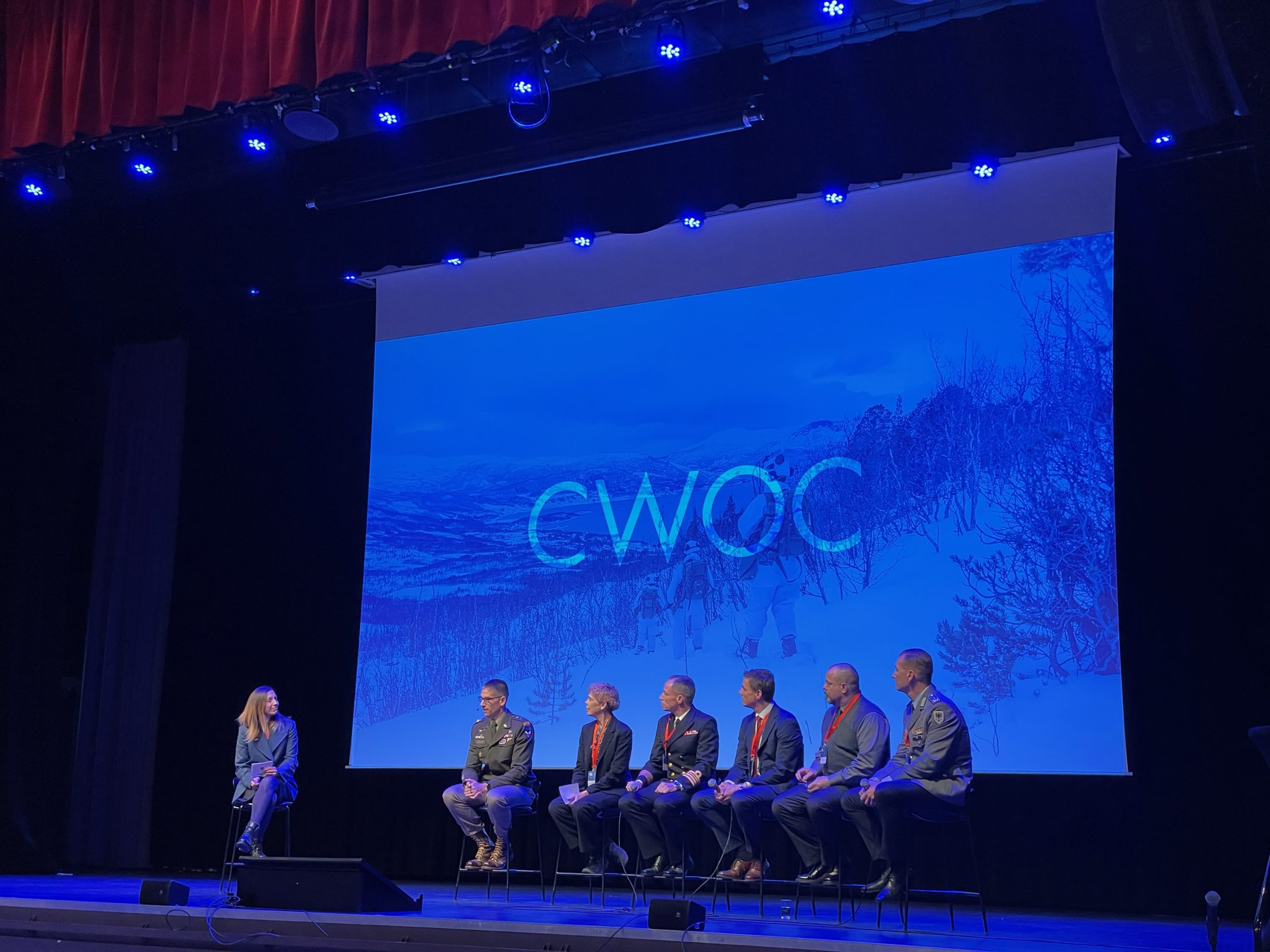
Members of the Ted Stevens Center for Arctic Security Studies joined representatives from 18 nations in Hamar, Norway, from Nov. 14-16 for the 2023 Cold Weather Operations Conference.
The conference aimed to highlight current and future geopolitical, strategic, and environmental trends that have implications for developing cold weather operations as part of multi-domain operations. Throughout the week, conference participants heard from subject matter experts on various topics ranging from strategy development to cold weather equipment development.
Hosted by the NATO Centre of Excellence for Cold Weather Operations, the conference convened Arctic security practitioners to enhance interoperability in cold weather operations. The Centre of Excellence is a Norwegian-sponsored organization providing NATO with expertise in warfighting readiness in a cold weather climate. By convening allied and partner nations to discuss cold weather operations, conference participants were able to improve best practices, build partnerships, and enhance overall operational capacity.
Set in Hamar, Norway, just over an hour North of Oslo, conference participants were greeted with snowfall and below-freezing temperatures. The Norwegian Armed Forces have extensive experience and knowledge on how to survive and conduct military operations in cold weather, which NATO members benefit from tremendously through training, doctrine, and shared best practices.
As NATO’s Northern flank becomes increasingly important in the evolving geopolitical environment, opportunities like CWOC 23 are vital to maintaining readiness and strategically aligning priorities. By leveraging the expertise of all alliance members, we will be stronger together.
At the conference, Esther McClure, Director of Arctic and Oceans Policy for the United States Department of Defense Office of Arctic and Global Resilience, previewed the forthcoming DoD Arctic Strategy set to be released in early 2024. McClure cited both the climate and geopolitical context as drivers of change in the Arctic region.
The new strategy will reflect the new strategic environment and nest within the 2022 National Strategy for the Arctic Region and the 2022 National Defense Strategy. McClure previewed the 3 E’s approach to the new strategy: Enhance, Engage, and Exercise.
Each line of effort underscores the importance of partnerships to maintain a stable Arctic region. Moreover, the updated strategy is indicative of the importance of the Arctic region for the U.S. and our partners and allies.
Also on the panel with McClure was the commanding general of the 11th Airborne Division, Maj. Gen. Brian Eifler who provided insights from the warfighter perspective. Eifler highlighted the achievements of the 11th Airborne in just a short time since activation in June 2022.
The 11th Airborne is a globally responsive, multi-domain enabled land force trained to fight and win in extreme cold weather and mountainous terrain. Eifler emphasized the 11th Airborne Division’s operational excellence in the Arctic and their ability to execute expeditionary operations rapidly within the Indo-Pacific theater. In addition, the 11th Airborne is working closely with allies and partners to deter aggression and fortify critical capabilities.
The Ted Stevens Center’s participation in CWOC facilitated collaboration with partners and allies to achieve innovation and excellence in Arctic and cold weather conditions on land, air, sea, and space. These efforts are essential to maintain effectiveness and develop expertise across the Joint Force. Furthermore, as the center actively builds future curricula to support Arctic readiness across the Joint Force, opportunities for shared knowledge allow our team to refine and enhance our curriculum to serve our stakeholders better.
Based on these critical findings, TSC will integrate analysis and lessons learned into developing our research and education. TSC is committed to providing the highest quality resources to our Arctic practitioners based on real-world experience in and across the Arctic. In doing so, we hope to provide our stakeholders with the best possible resources to make informed policy decisions regarding the Arctic region.
Photo By Hannah Smith | Discussion panel members share their insights with audience members during the 2023 Cold Weather Operations Conference in Hamar, Norway which was held Nov. 14-16. The conference aimed to highlight current and future geopolitical, strategic, and environmental trends that have implications for developing cold weather operations as part of multi-domain operations. Throughout the week, conference participants heard from subject matter experts on various topics ranging from strategy development to cold weather equipment development. (U.S. DoD photo by Hannah Smith) View Image Page
